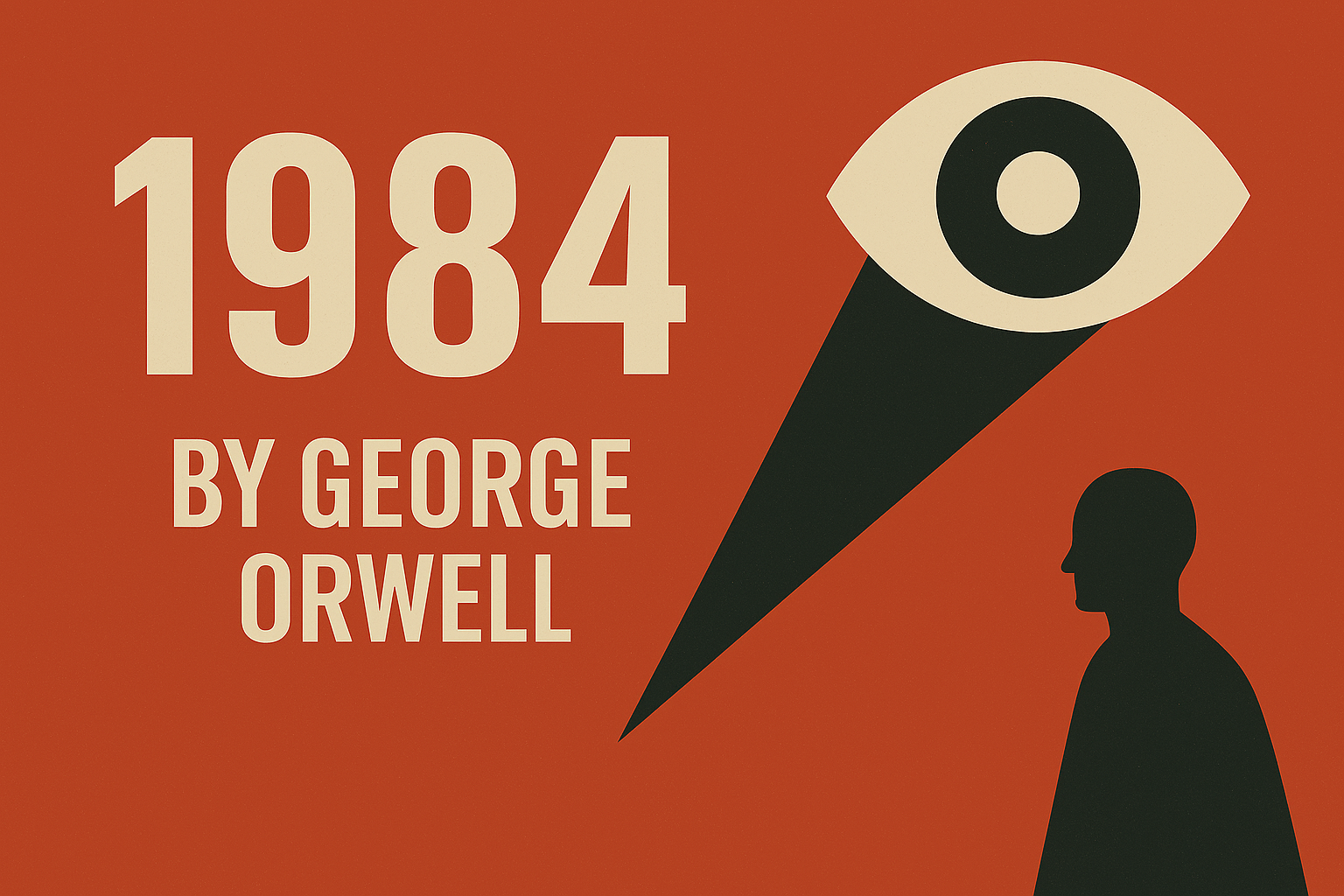Summary
Plot Overview The story follows Winston Smith, a low-ranking member of the Party in Oceania, who works at the Ministry of Truth, rewriting history to fit the Party’s narrative. Disillusioned with the regime, Winston begins a forbidden love affair with Julia and secretly dreams of rebellion. However, in a society where “Big Brother is watching you,” dissent is impossible. Betrayal, psychological manipulation, and torture ultimately break Winston, leaving him a hollow shell who learns to “love Big Brother.”
Major Themes
- Totalitarian Control
Orwell illustrates how absolute power corrupts absolutely, using propaganda, surveillance, and fear to maintain dominance. - Manipulation of Truth
The Party’s slogan—“Who controls the past controls the future; who controls the present controls the past”—underscores the danger of historical revisionism. - Loss of Individuality
In Oceania, personal identity is eradicated. Independent thought is a crime—literally called “thoughtcrime.” - Language as Power
The invention of Newspeak demonstrates how language can limit thought and suppress dissent.
Style and Impact
Orwell’s prose is stark and chilling, creating a world that feels both alien and disturbingly familiar. Terms like “Big Brother,” “doubtthink,” and “thoughtcrime” have entered everyday language, reflecting the novel’s enduring influence. 984 remains a warning against unchecked power and the erosion of truth, a warning that feels increasingly relevant in the digital age.
Strengths
- Timeless relevance in discussions of privacy, propaganda, and authoritarianism.
- Brilliantly constructed world-building and political commentary.
- Memorable, haunting imagery and concepts.
Weaknesses
- The bleak tone and lack of hope can be emotionally heavy for some readers.
- The middle section (Goldstein’s book) can feel dense and theoretical.
Conclusion
1984 is not just a novel—it’s a cautionary tale that continues to resonate in an era of mass surveillance, fake news, and political polarization. For anyone interested in politics, ethics, or the psychology of power, Orwell’s work is essential reading.
